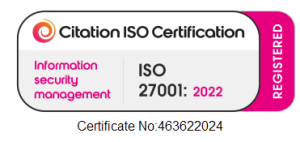What Does IT Support Include? A Complete Guide for Business Owners
IT support for business includes hardware maintenance, network management, software updates, data backup, security monitoring, and help desk services. It’s comprehensive technology assistance that prevents problems, fixes issues quickly, and keeps your business systems running reliably.
Running a business today means relying on technology. Your computers, network, phones, and software all need to work properly for your team to be productive. But what happens when something goes wrong?
That’s where IT support for business comes in. It’s the safety net that keeps your technology running smoothly and your business moving forward. But if you’re not sure exactly what IT support includes or whether your business needs it, you’re not alone.

What Is IT Support for Business?
IT support for business is a comprehensive service that helps maintain, troubleshoot, and improve your company's technology systems. It covers everything from fixing crashed computers to planning major system upgrades.
Think of it as having a dedicated team of technology experts on call to solve problems quickly and prevent bigger issues down the line. Research from Gartner shows that businesses typically spend 2.4% of their revenue on IT, with support services being a critical component.
The key difference between basic computer repair and professional IT support is the proactive approach. Instead of waiting for things to break, good IT support prevents problems before they happen.
Core Components of Business IT Support
Hardware Support and Maintenance
Your computers, printers, servers, and other equipment need regular care to perform reliably. Hardware support includes:
When your main server crashes on a Monday morning, having proper hardware support means getting back online in hours, not days. Understanding your IT infrastructure needs is crucial for planning the right level of hardware support.
Need help assessing your current hardware setup? Get in touch with our team for a free consultation.
Network Support and Management
Your business network connects everything together. Network support ensures reliable internet access, file sharing, and communication across your organisation.
This includes:
Poor network performance can cost your business hours of productivity every week. Studies from Cisco indicate that network downtime can cost small businesses up to £427 per minute.
Software Support and Updates
Your business software needs constant attention to stay secure and functional. Software support covers:
Keeping software updated isn't just about getting new features – it's about security. The UK's National Cyber Security Centre reports that unpatched software is one of the leading causes of successful cyber attacks.
Data Backup and Recovery
Losing important business data can be devastating. Backup and recovery services include:
The UK Government's Cyber Security Breaches Survey 2023 found that 31% of businesses experienced data loss in the past year. Having reliable backup systems isn't optional – it's essential business protection.
Concerned about your current backup situation? Let's discuss a backup strategy that fits your business.
Security Monitoring and Management
Cyber threats are constantly evolving, and your business needs active protection. Security support includes:
Small and medium businesses are increasingly targeted by cybercriminals. They often have weaker security measures than larger companies, making them attractive targets.
Help Desk and User Support
When your staff have technology problems, they need quick solutions to stay productive. Help desk support provides:
Response times matter. Most businesses expect IT issues to be resolved within 4 hours during business hours, with critical problems addressed within 1 hour.
Types of IT Support Services
Reactive vs Proactive Support
Reactive support fixes problems after they happen. You call for help when something breaks, and a technician responds to solve the immediate issue.
Proactive support prevents problems before they occur through regular monitoring, maintenance, and system optimisation. This approach reduces downtime and often costs less in the long run.
Research from Aberdeen Group shows that companies using proactive IT support experience 50% less downtime. That's significantly less disruption to your business operations.
Managed IT Services
Managed IT services provide comprehensive, ongoing support for all your technology needs. Instead of calling different companies for different problems, you have one team handling everything.
Benefits include:
The benefits of outsourcing IT support extend far beyond just cost savings. It gives you access to enterprise-level expertise at a fraction of the cost.
On-Site vs Remote Support
Remote support allows technicians to access your systems over the internet to diagnose and fix many problems without visiting your office. It's faster and more cost-effective for software issues.
On-site support involves a technician visiting your premises for hands-on hardware repairs, network installations, or complex troubleshooting.
Most modern IT support combines both approaches. They use remote access for quick fixes and on-site visits when physical presence is required.
Wondering which support model suits your business best? Give us a call to discuss your specific needs.
Signs Your Business Needs IT Support
Frequent Technology Problems
If your team regularly experiences:
These recurring issues are costing you money in lost productivity. They're also frustrating your customers who expect reliable service.
Lack of Internal IT Expertise
Many business owners try to handle IT issues themselves or rely on a "tech-savvy" employee. This approach often leads to:
Without proper IT expertise, small problems can quickly become expensive disasters. Professional support prevents these costly mistakes.
Experiencing any of these challenges? Our team can assess your current setup and recommend improvements.
Choosing the Right IT Support Provider
Key Factors to Consider
| Factor | What To Look For | Why It Matters |
|---|---|---|
| Response Times | Guaranteed response within 1-4 hours for critical issues | Your business can't afford extended downtime - every minute costs money |
| Industry Experience | Proven track record in your sector | Providers familiar with your industry understand specific compliance requirements and common challenges |
| Service Level Agreements | Clear, detailed SLAs defining services and timeframes | Protects both parties and ensures you get exactly what you're paying for |
| Local Presence | Nearby technicians for on-site support | Faster response times and better understanding of your business environment |
| 24/7 Monitoring | Round-the-clock system monitoring and support | Problems often occur outside business hours - early detection prevents major issues |
| Transparent Pricing | Clear, predictable monthly costs | Helps with budgeting and prevents surprise charges |
Essential Questions for Potential Providers
These questions help you understand exactly what you're getting. Don't settle for vague answers – you need specific commitments.
Ready to find the right IT support partner? Fill out our online form and we'll match you with the services your business needs.
Why Nortech for Your Business IT Support?
Finding a provider that delivers reliable IT support can be challenging. At Nortech, we've built our reputation on one simple principle: keeping your technology working so you can focus on your business.
What we do:
Our approach:
Local expertise you can trust: Businesses across Northampton, Milton Keynes, and surrounding areas choose us because we respond quickly when problems arise and work proactively to prevent them.
We scale our services to match your needs - whether you're a small business needing basic support or a larger organisation requiring complex solutions.
Ready to improve your business technology? Contact our team for a consultation focused on your specific needs.

